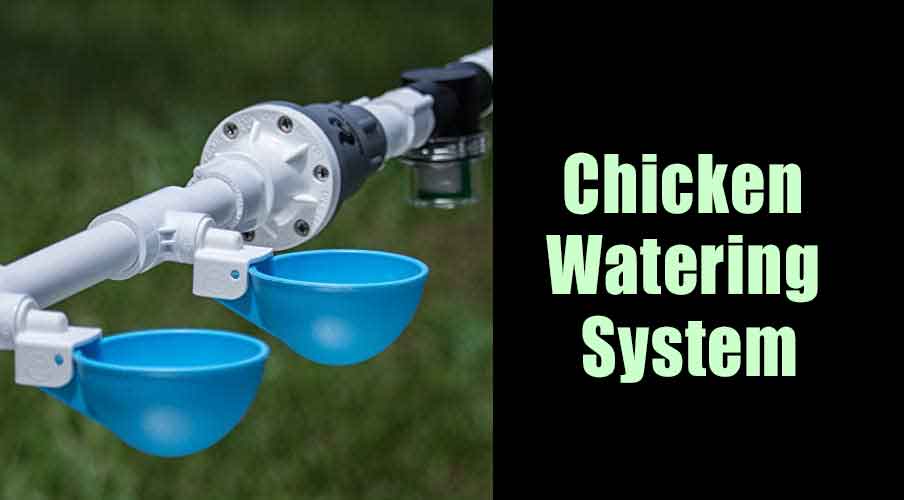A coop owner should consider the environment and the flock’s behavior. Chicken is our pet birds, but they won’t easily come close to you even if you raised them for a few years. So, you cannot call them to drink water. They need to drink fresh water for a healthy body, so you should provide it with 24-hour access. Filling the container is not enough to water them.
You can use a different style of the best chicken waterer in the coop. Water helps to digest the protein and other essentials from the body.

How to Water Chickens In a Coop
Here are the tips and ways you can water chickens in the coop:
Bucket or Container
It is the cheapest, easiest, and best way to water the chicken. You can even use a dog watering pan in the chicken coop. You can also use a dishpan, ice cream bucket, plastic container, etc., to hold water. Please do not use any deep container; use shallow with low sides to easily access it. Your flocks won’t feel any difficulties drinking water from a container.
However, chickens easily mess it up and scratch it, so you need to clean and refill it regularly. Also, give them fresh water and proper access to water in hot and cold weather. A plastic waterer could be best for them.
Gravity Fed Chicken Watering System
This watering device is also called a bell chicken waterer or galvanized waterer. It is shaped like a bell with a shallow lip at the bottom. Using this will be easy for you, especially when you start your poultry business, as it has many different sizes.
A large size can provide enough water for fifty chickens. You can use plastic or metal ones; both prevent spillage. Some water remains in the bottom, so it automatically fills whenever it is empty. It is better than an open bucket because it gets dirty easily.

The chicken gets fresh and clean water through it for a longer time. It is also effective in winter.
Automatic Chicken Nipple
It is also called chicken drippers or automatic chicken waterers. It is beneficial for commercial poultry production, but you can also use it in your backyard. It is also a safe option because any dust or features cannot mix with the water. You can customize a PVC pipe and set this at any configuration. Then put some little drippers on the pipe. The chicken will just come up and tap the drippers, and a little bit of water will come out.
This option is a little expensive, and you cannot use it if you have fewer chickens.
Water for Chickens DIY
You can make your chicken waterer with a bucket or container with simple modifications and paintings. You can drill holes, attach special nipples to the bucket, and hang the bucket a little higher than the ground. I used a 5-gallon bucket and then drilled a 1-inch hole on each side. Then put the bucket on the pan in an upside position then fill it with water. Flocks need to be trained properly to drink water from this system.
You can also add an electric device to heat the chicken’s water.
Where do You Put Water for Chickens?
Water is the most important nutrient for chicken. You must put the waterer in the right place. It saves the flocks from radiant heat. If you use a nipple waterer, hang it high from the ground. If the ground is not flat, tightly seal the lid of the water pot to get the vacuum effect.
If you use a water container, put a wood piece or stone under it to make it a vacuum-sealed waterer. Chicks will appreciate the feed.
How Much Water do Chickens Drink Daily
Maintain the space requirement properly all the months. Knowing how much water the chicken drinks daily before putting the waterer on the coop is essential. Chickens only drink a sip at a time to control their body heat, but they drink almost half a liter of water a day to keep themselves healthy and productive. In summer, they drink 1 liter, so you should provide that much water in a coop for one chicken. For 100 baby chicks, you will need 1 gallon of water per day. Also, keep the backup water for them even on cold nights.
Do not provide cold water. Use a water heater in winter and chicken coop fan in summer. Cool water and warm water can be drinkable for the backyard flock. But room temperature water is better for excessive heat or warm weather. Do not keep the water in direct sunlight. The additional cost is not much to make a water source for chicken. Also, keep extra waterers in the coop for chicken.
